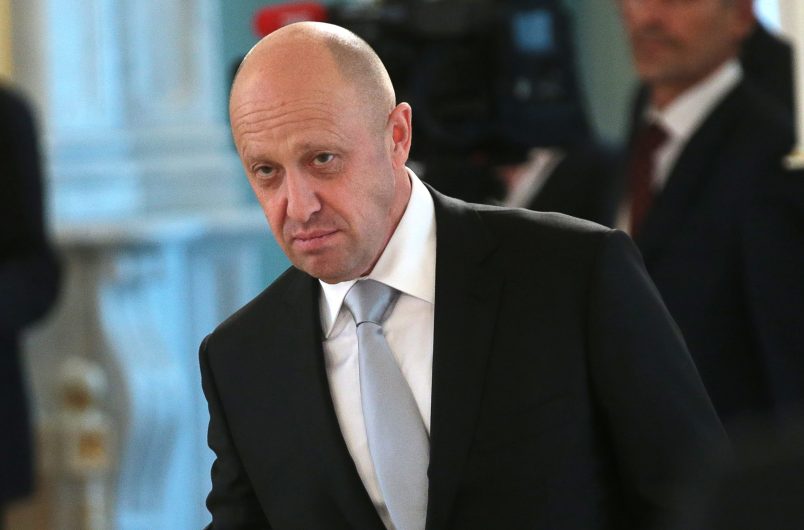A federal judge this week took a stab at resolving a months-long discovery dispute that has embroiled the case special counsel Robert Mueller brought against Russian individuals and organizations allegedly behind 2016’s election meddling on social media.
So far, only one of the defendants in Mueller’s February 2018 indictment — a company called Concord Management, which allegedly funded the internet troll effort — has hired lawyers to show up in court to fight the charges.
Prosecutors have resisted giving officials at Concord access to certain discovery in the case and have in particular objected to giving access to Concord’s exec Yevgeny Prigozhin, a Putin ally who was also charged by Mueller but hasn’t submitted to the court’s jurisdiction. Prosecutors say doing so would a pose a national security risk, and last summer they secured a protective order that required a court’s permission for anyone outside of Concord’s U.S. legal team to see discovery.
U.S. District Judge Dabney Friedrich on Friday sided with the government again, in adopting its proposal to loosen some but not all aspects of the protective order.
“Throughout these proceedings, the government has explained how foreign adversaries could use this discovery to reverse engineer the investigative measures used and to avoid detection and prosecution in the future,” she wrote in the opinion published Friday. She said that government filings submitted ex parte — meaning only the court, and not Concord, was able to view them — provided “concrete examples of the ways in which unrestricted access to sensitive discovery could jeopardize the nation’s security.”
Her opinion cited an incident last October in which a mysterious Twitter account sent reporters what appeared to be some of Mueller’s discovery in the case. According to court filings, the Twitter account bragged it had accessed the files through a Russian company that had been given permission to download the files by the Concord’s U.S. legal firm, Reed Smith.
It is still not publicly known how the Twitter account obtained the files, and a portion of that section of Friedrich’s opinion was redacted.
For months, Concord’s American lawyers have fought in court — in mostly sealed proceedings — to relax the 2018 protective order, which required court approval for anyone outside the legal team to view the discovery.
Concord’s lawyers insisted that the order’s requirement that Concord employees come to the U.S. Reed Smith office to view the discovery was unworkable. They said to understand the discovery in preparation for the trial, the lawyers needed the input of Concord officials, including Prigozhin.
Under the government proposal adopted by the judge on Friday, discovery would be divided into a three tiers. Access to the most sensitive subset, dubbed “U.S. sensitive discovery,” would continue to be restricted to just Concord’s U.S. legal team, along with those who obtained the court’s permission to view the discovery in the U.S. Reed Smith office.
The proposal created second tier — called “intermediate sensitive discovery” — that would be accessible to Concord employees to view in Russia, but only if their viewing and discussion of the discovery was limited to within Reed Smith’s Russian office. A Reed Smith employee would need to be present for such occasions and those viewing it would need to sign an agreement to not share it outside of the case, under the proposal.
The rest of the discovery is covered under more typical protective order terms and was not subject to the current dispute.
Previous filings in this dispute are still in the process of being unsealed now that the judge has handed down her decision. From her opinion unsealed Friday, it appears Concord had opposed parts of the government’s proposal and specifically its prohibition on counsel discussing the discovery outside the U.S. or Russian offices. Concord’s lawyers had also argued that the government had overreached in what discovery it had deemed sensitive.
The judge said she that “both the scope of and the restrictions on U.S. sensitive discovery are justified to protect the government’s weighty national security and law enforcement interests.”
Read the opinion below:







Sounds like as good a solution as one could ask for. I know some will say that you can’t trust the Reed Smith lawyers to abide by the protective order, but the court must assume that the lawyers appearing before it will comply with their ethical obligations, at least until they give the court reason to doubt it. Also, Reed Smith is a respectable firm and its lawyers won’t be likely to risk their careers and law licenses on behalf of a Russian client.
Sounds like a job for SuperBarr and the Justice League! We wouldn’t want to infringe on Russia’s right to legally hack away at our intelligence services.
I saw the headline and thought this was a Trump win, because with Barr on board, I have adjusted to the Gov’t being the bad guys. But I had to read the article to realize that this is a leftover from our Mueller days - back when we had hope he would save us.
I was also confused at first. I think TPM uses “gov’t” instead of “ttump admin” to show the difference.
I, too had to read the article to see that the Judge did agree with the right side. In the age of Double Speak its hard to know whats what.